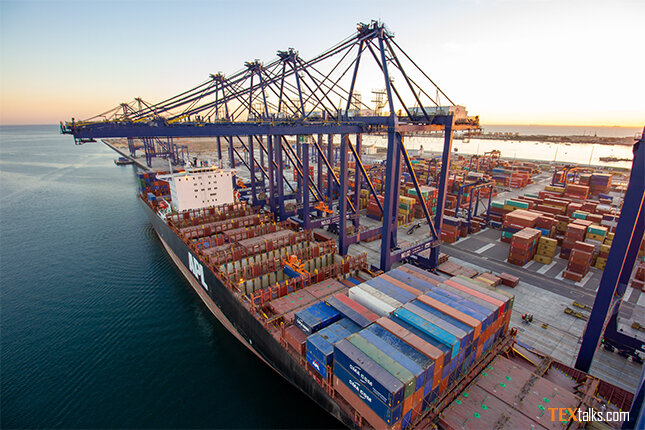The All Pakistan Textile Mills Association (APTMA) has urged the prime minister to intervene immediately and clear the highways for the movement of import and export cargo, which has remained suspended since April 19, 2025.
Addressing a press conference on Saturday, APTMA Chairman Kamran Arshad highlighted that over 25,000 export containers are stranded and unable to reach ports due to the paralysis of cargo movement across Sindh. He added that around 50,000 containers carrying imported and local inputs are also stuck, warning that even with immediate clearance, the backlog would take 20 to 25 days to resolve.
Kamran termed the situation a “national crisis,” cautioning that it threatens to cause hundreds of millions of dollars in economic losses, disrupt industrial operations, delay export orders, and further strain Pakistan’s fragile economy. He called for urgent intervention from the prime minister, Sindh chief minister, and Bilawal Bhutto Zardari to resolve the escalating logistics crisis.
The APTMA chairman also expressed serious concerns over anomalies in the Export Facilitation Scheme (EFS). He pointed out that the removal of sales tax exemptions on local supplies, while retaining duty-free status for imports, has severely hurt the domestic textile sector, particularly the spinning industry and cotton growers.
He said around 120 spinning mills, representing about 20 to 25 percent of yarn production, and over 800 ginning factories have already shut down. With the remaining mills operating at just 50 percent capacity, Kamran warned of further closures, massive job losses, and significant damage to rural economies.
Kamran criticised current policies for incentivising the use of imported raw materials over domestic production, resulting in direct and indirect job losses across various sectors. He urged the government to restore the EFS to its June 30, 2024, position by reintroducing zero-rating or sales tax exemptions on local supplies.
Alternatively, he proposed imposing equivalent taxes on imports to level the playing field for local industries.




